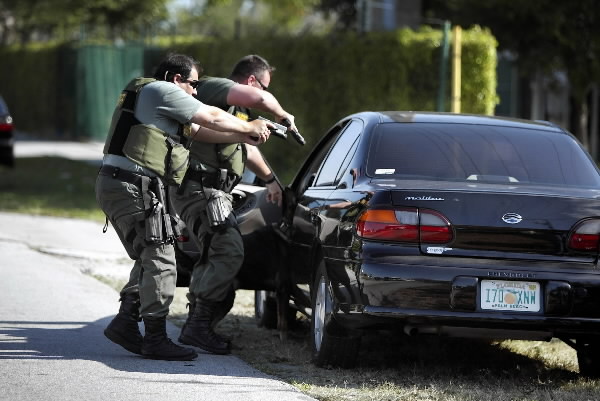
Have you, or has someone you know, been shot by a police officer that resulted in death or serious injury to yourself or another? If yes, then you may be wondering what to do. Williams Oinonen LLC handles cases in which police officers fatally shoot or seriously injure people by the use of unreasonable deadly force. Unreasonable use of deadly force is commonly referred to as excessive force, meaning deadly force that was both not necessary and unreasonable under the law.
For the next couple of weeks, our law firm is going to post about deadly force in the context of “officer involved shootings.” Today, we are going to discuss a few reasons why you must ensure that a lawyer is contacted as soon as possible, when you have, or someone you know has, been shot by a police officer in Georgia.
Before discussing that, however, you should know that police misconduct cases, especially ones that involve excessive force (for example, deadly force) are extremely difficult. The law favors police officers and courts throw out (dismiss) many cases against law enforcement, daily. But that does not mean your case will be thrown out. Everything depends on the facts and how those facts are applied to the law.
So today, our law firm will briefly discuss the most significant thing you can do to help ensure that the proper facts surrounding the death or serious injury of you or someone you know are gathered as fast as possible: contact an attorney.
Cases against law enforcement are often won (or lost) before a lawsuit is ever filed, so immediately contacting a lawyer who is experienced in handling police misconduct cases is vital for the following reasons amongst others:
1. If the attorney accepts your case, then that attorney will need to send out a “spoliation letter” to all relevant entities and people such as the police officer who used deadly force and the department the officer works for. The spoliation letter helps your case because the letter will ensure that the relevant entities and people are placed on “notice” to retain (not destroy) all evidence such as audio recordings, video recording, and certain documents.
As far as preserving potential evidence, without a spoliation letter, a police department may argue that their document retention schedule required them to destroy certain potential evidence that could have been relevant to your case. However, with a spoliation letter, your attorney will be able to argue that if the potential evidence existed at the time the Police Department received your spoliation letter, then that Department should not have destroyed the potential evidence. This is vital when going before a judge because if potential evidence was wrongfully destroyed, a judge may sanction (punish) the party that destroyed the evidence, and that obviously would help your case a lot.
But even the issue of who spoliated (destroyed) the potential evidence and what can be done to the party who destroyed potential evidence is very complicated. For example, say you only sued a police officer but someone from his Police Department (such as chief of security) destroyed your potential evidence. The issue gets complicated because neither the chief of security or the police department is a party to your case. You must have an experienced lawyer to address issues such as this one, and many more. Contact Williams Oinonen LLC today.
2. The sooner the attorney comes on the scene in Georgia, the better, because Georgia has a very powerful tool to help gather potential evidence in cases against police officers: The Georgia Open Records Act (“GORA”). GORA allows citizens to obtain publicly releasable information from (1) government institutions and even in some cases from (2) private companies who perform government work. So once you have an attorney, that attorney can begin gathering publicly, releasable information (such as an officers training profile and prior investigative reports from various agencies) that could be relevant to your case. Again, the sooner this process begins, the better, due to document retention schedules of public agencies, and other issues.
Also, you should collect every witness name you can, and give those witness names to your attorney ASAP. Your attorney needs this information because many times your attorney will want to get a sworn affidavit from the witness, or another statement, or simply talk to the witness. Sometimes, you may know of a witness that the police did not identify or know about, so it is vital that you get the names of all known witnesses to your attorney, ASAP. Providing witness names to your attorney is vital to you also because the better informed your attorney is, the more likely your attorney can properly assess the case and provide you with realistic expectations. Police misconduct cases, especially those that involve excessive force (for example, deadly force) can take years to resolve.
_____________________________
That’s it for today. In our next Blog Post about police misconduct, we will discuss how the law reviews an officer’s use of deadly force. Contrary to popular belief, the law actually looks at the officer first, not at what the victim did (or did not do).
Contact Williams Oinonen LLC if you have been seriously injured by the use of deadly force or you know someone who has been killed or seriously injured by the use of deadly force (excessive force).
 Georgia Injury Lawyer Blog
Georgia Injury Lawyer Blog

